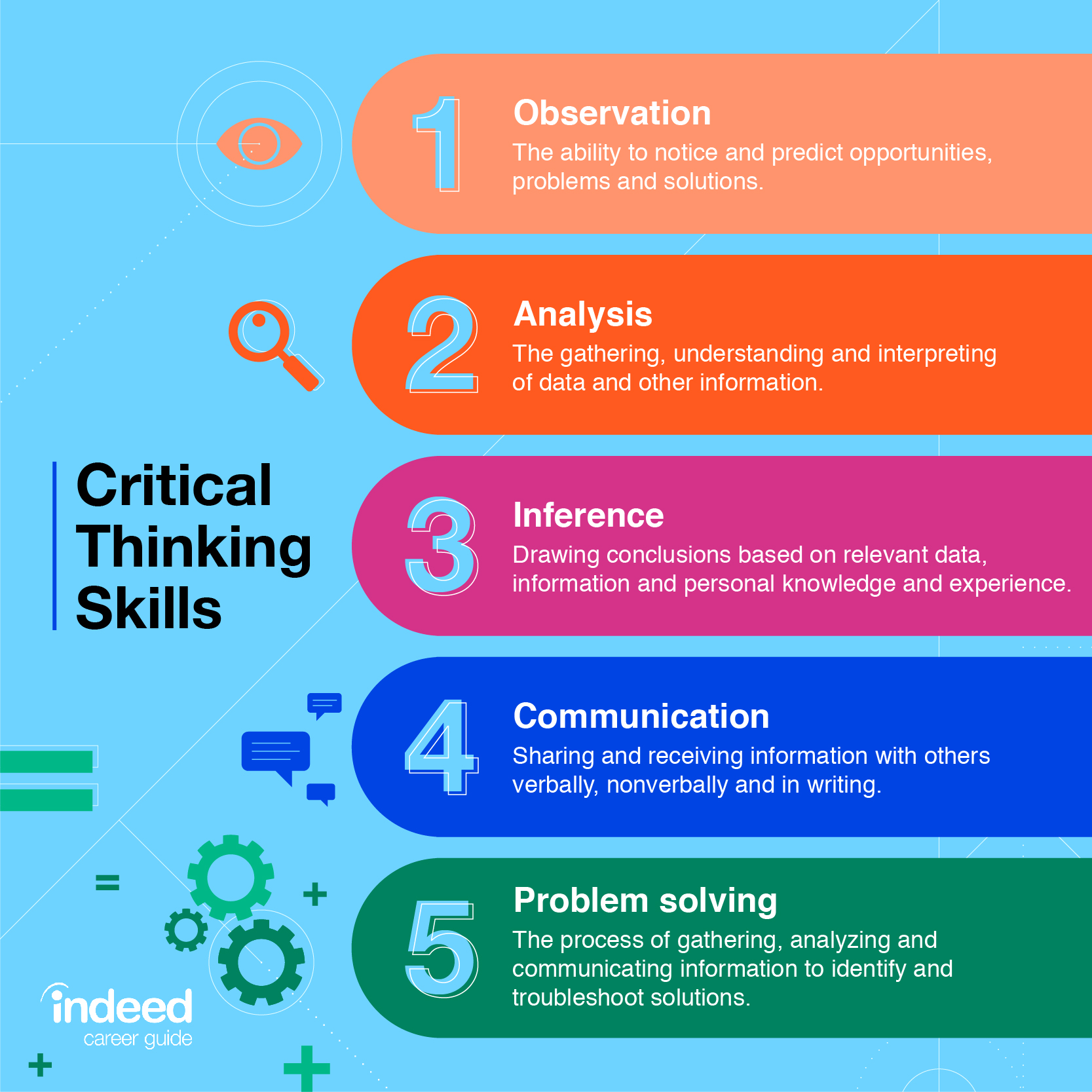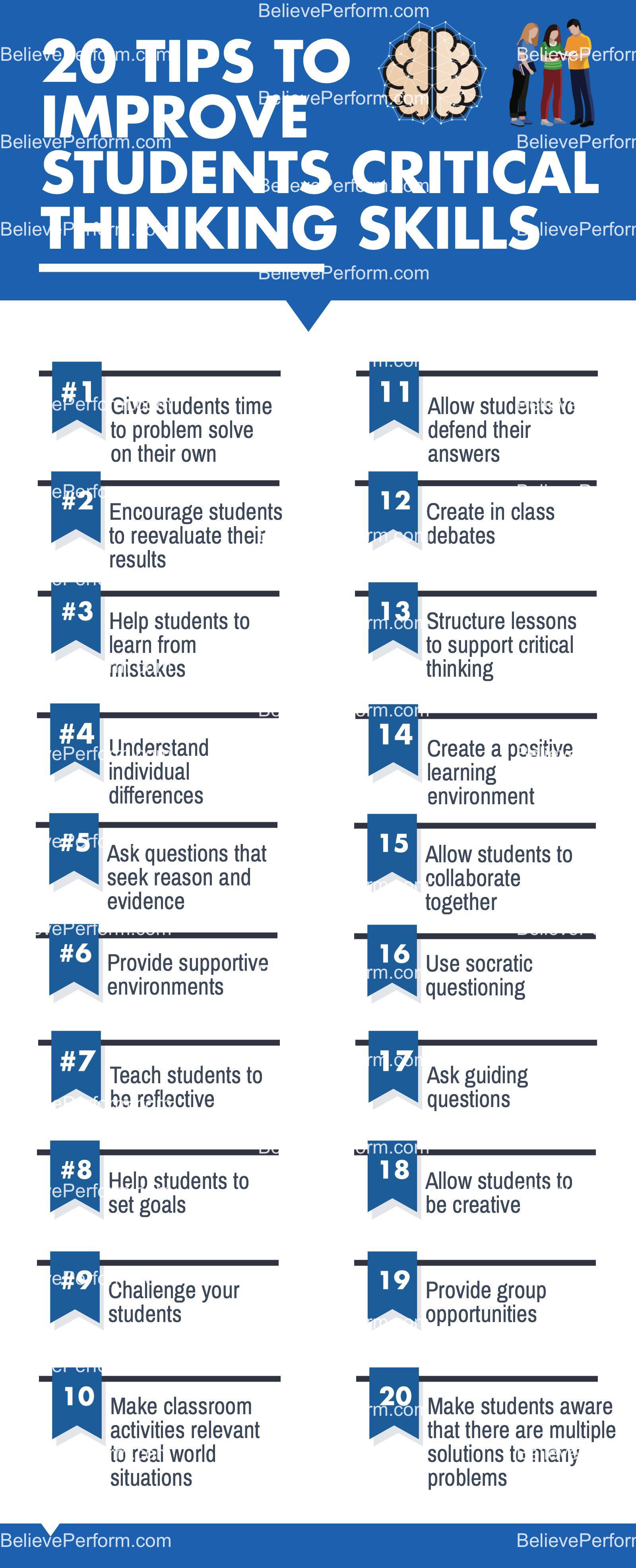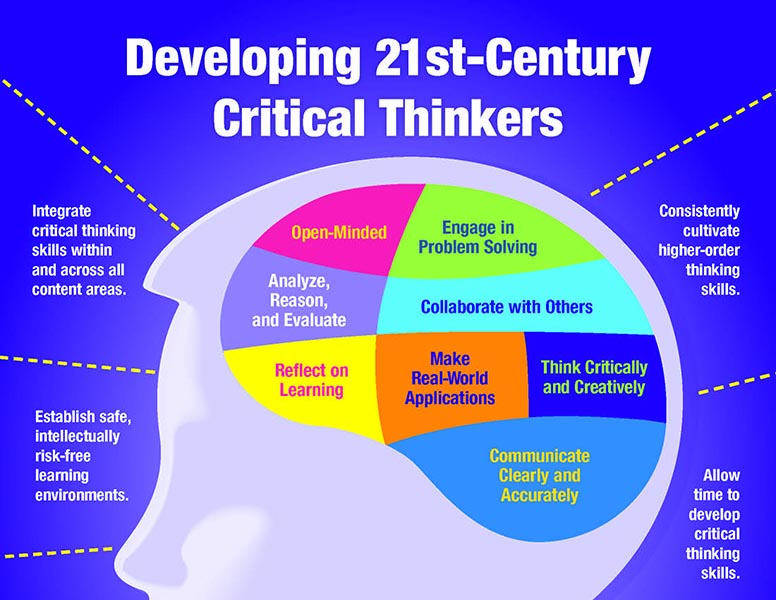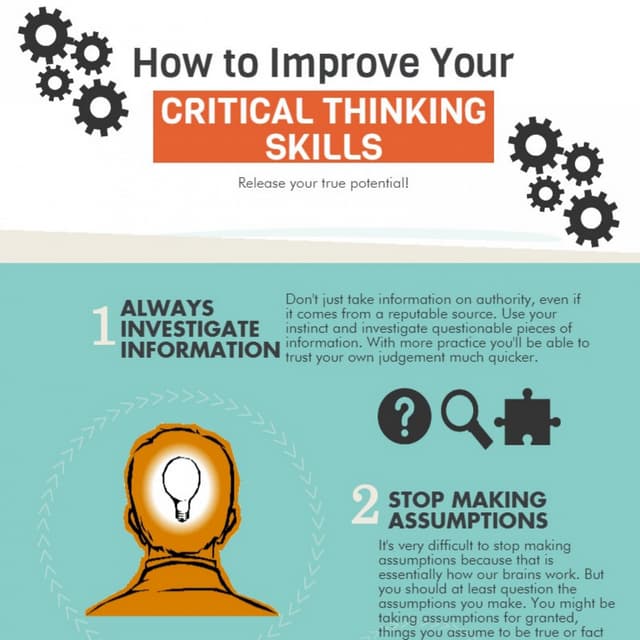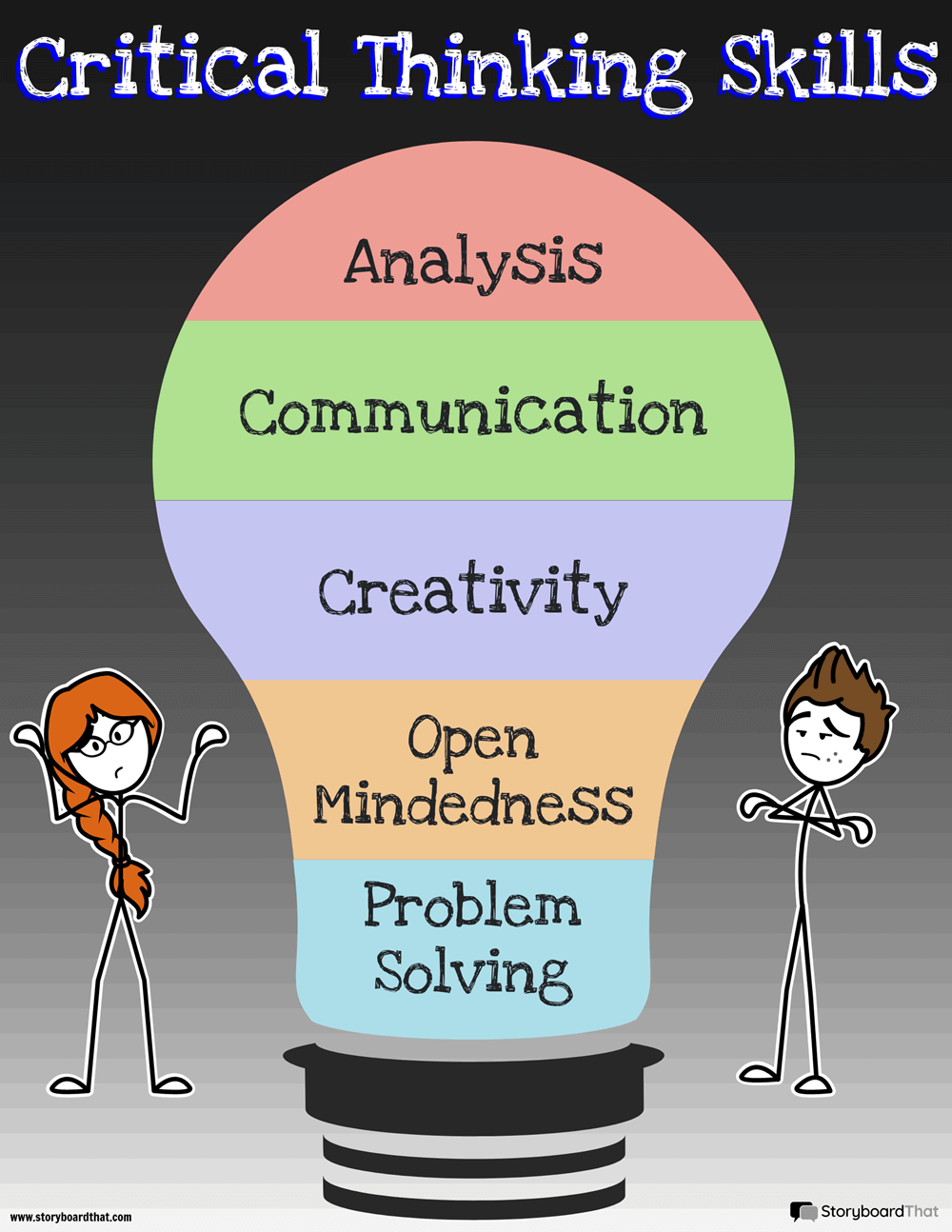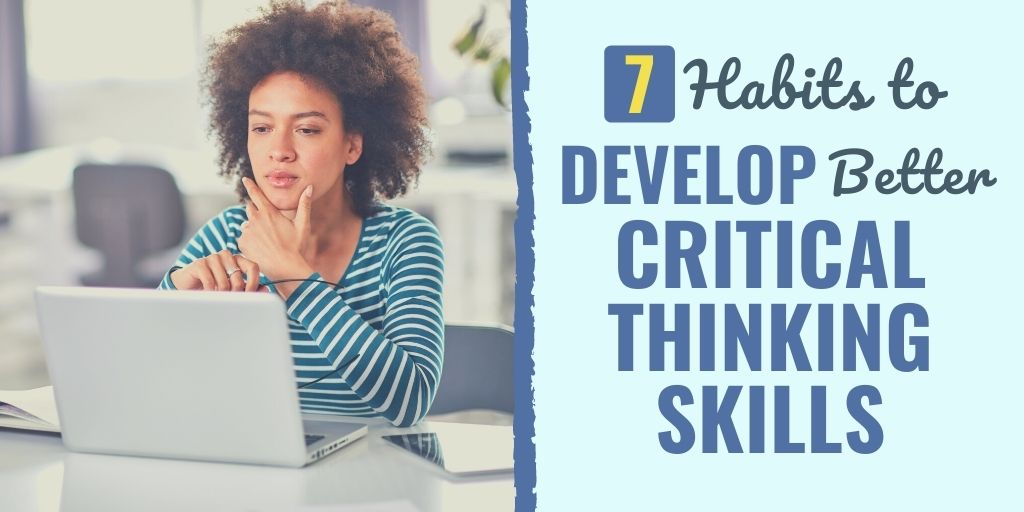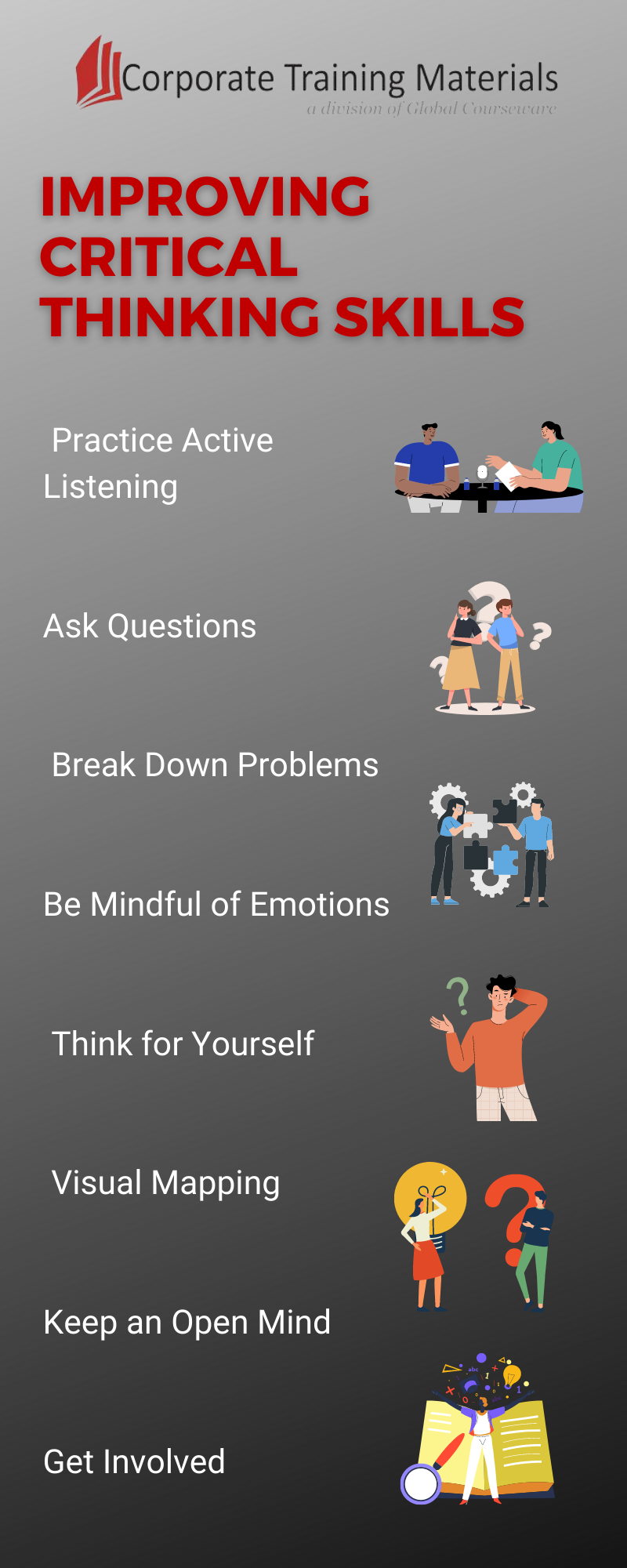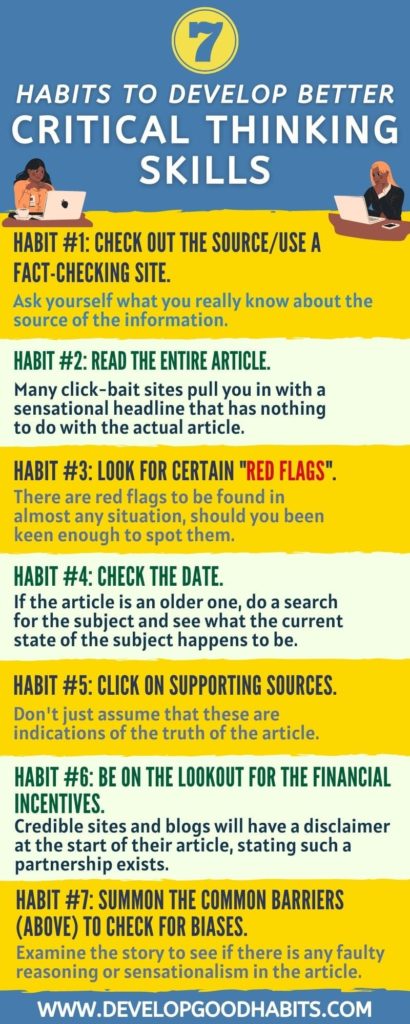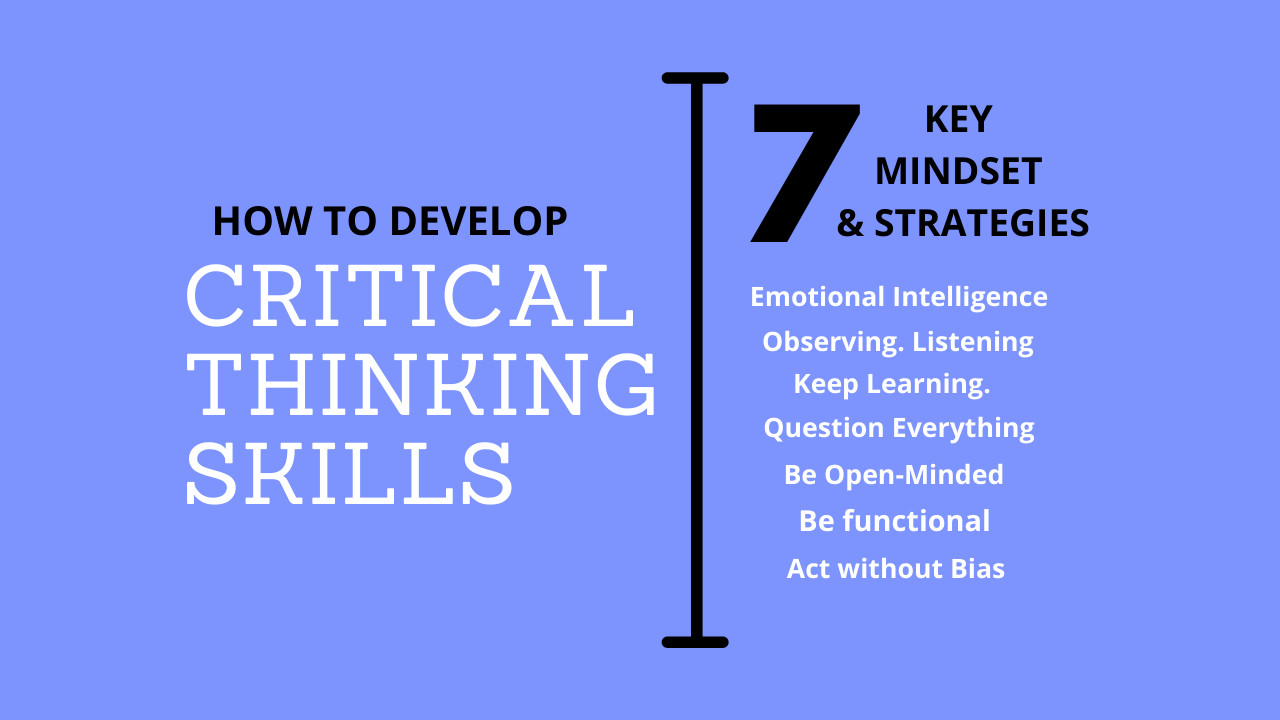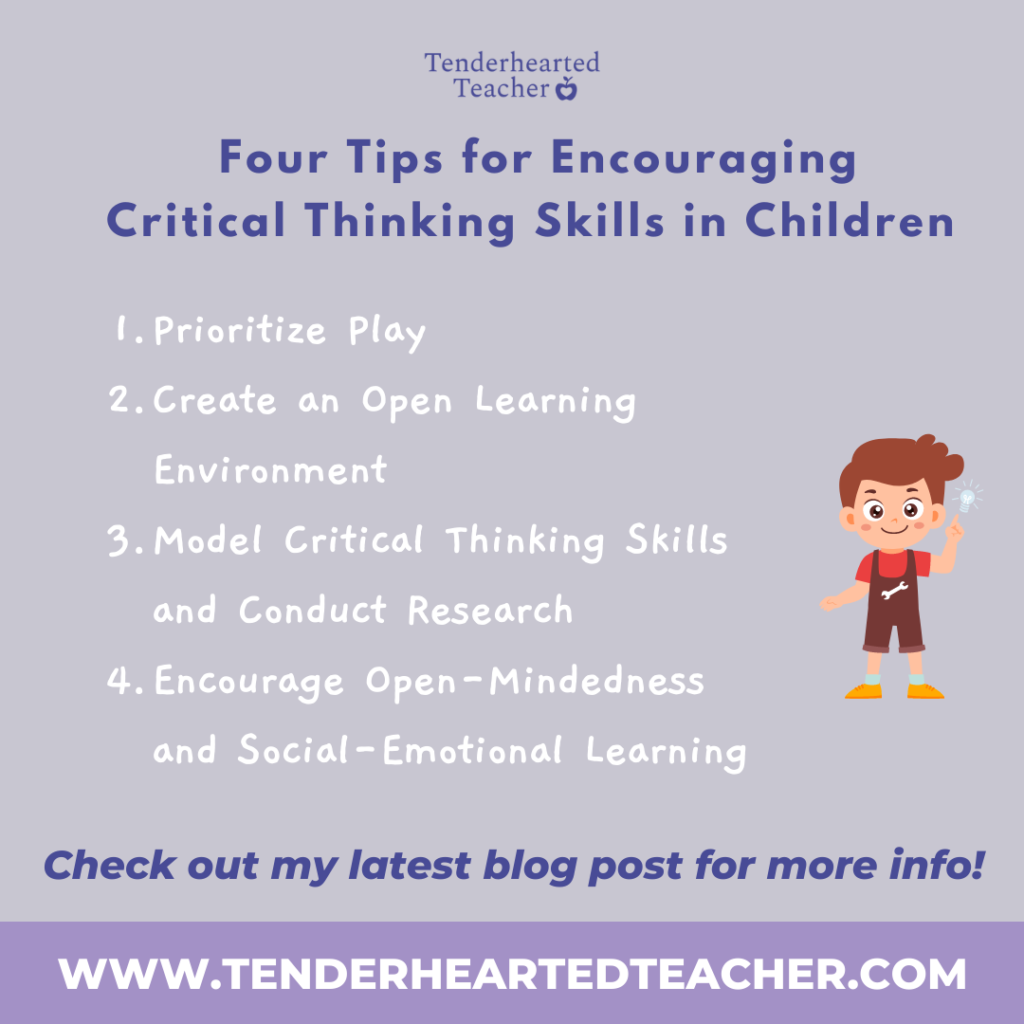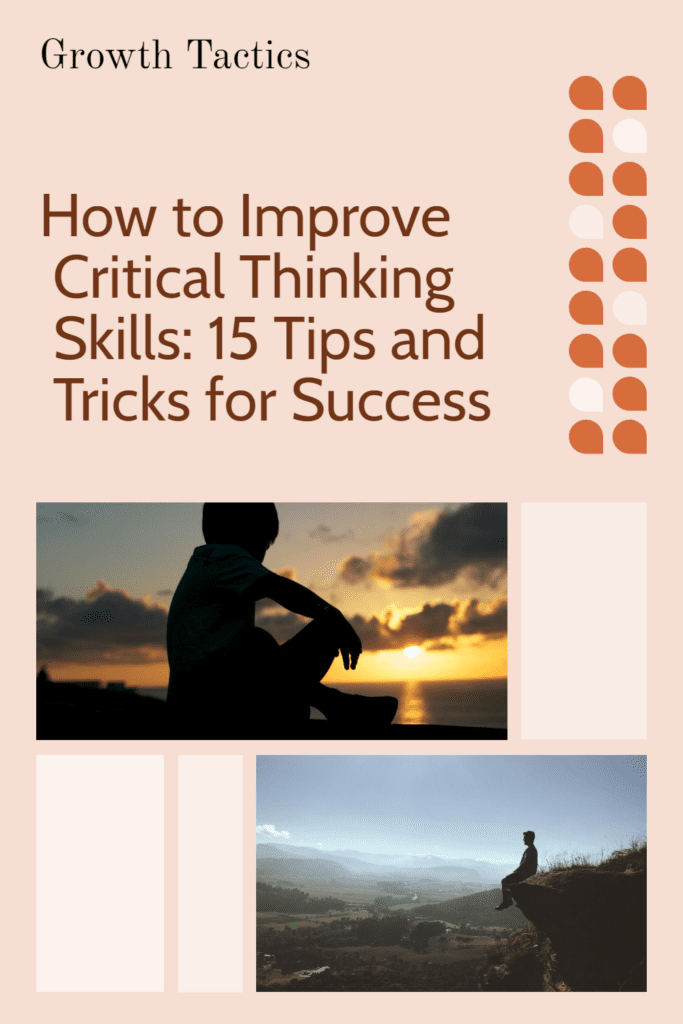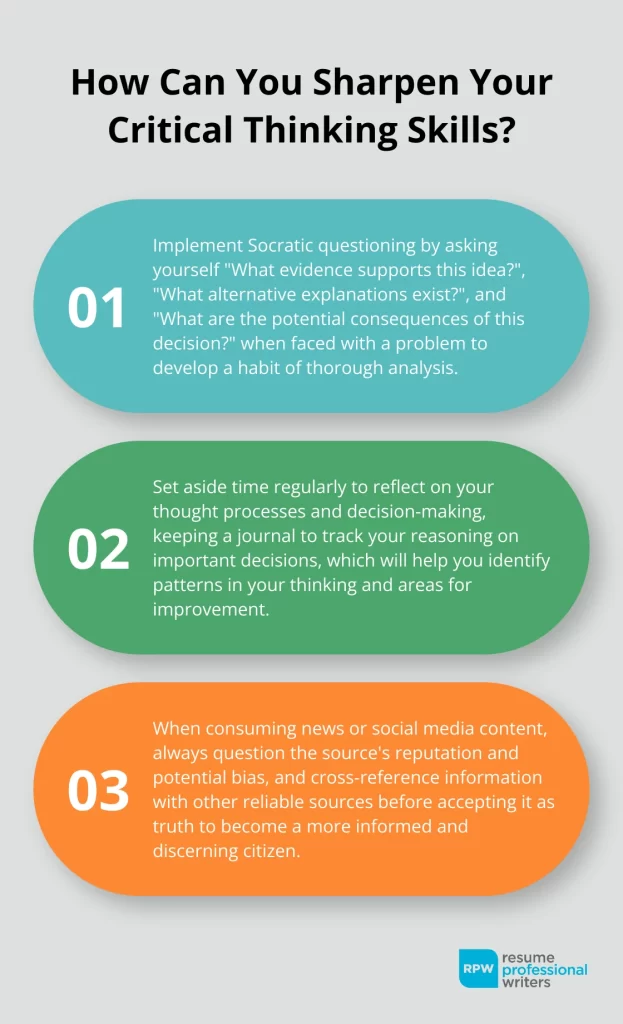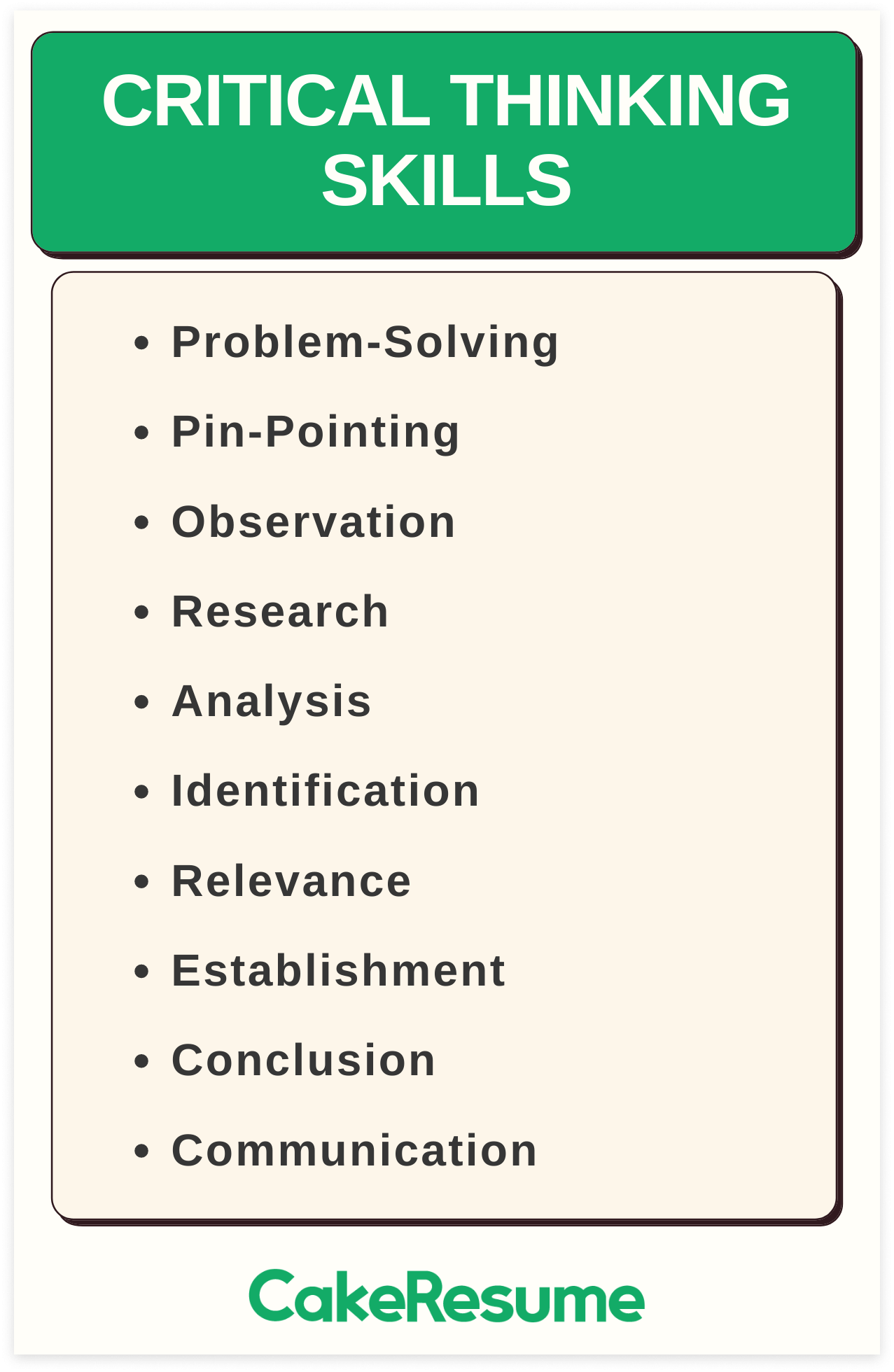How To Enhance Critical Thinking Skills
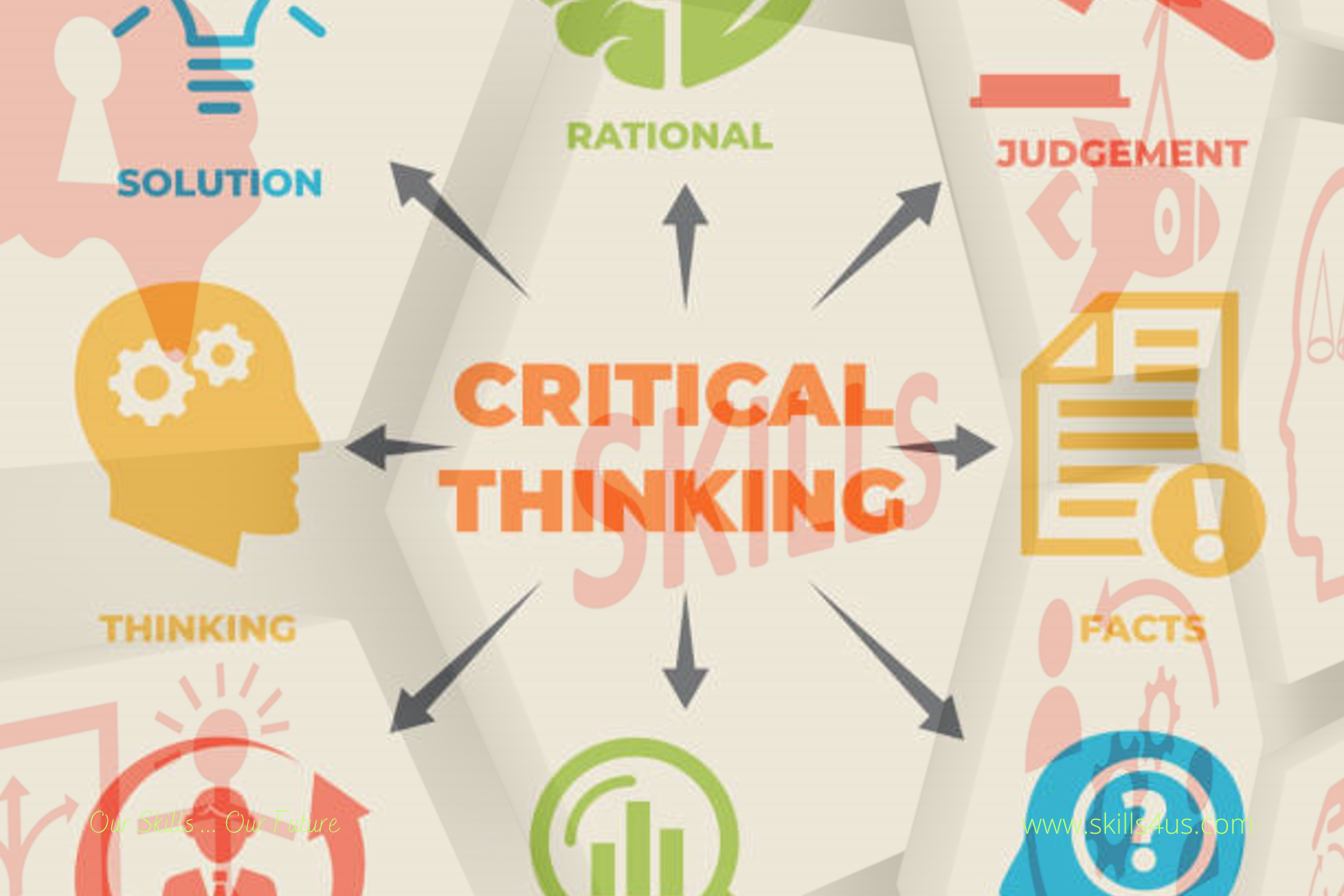
In a world awash with information and misinformation, the ability to think critically has never been more paramount. From navigating complex social issues to making sound financial decisions, critical thinking is the bedrock of informed citizenship and effective problem-solving. But how do we cultivate this crucial skill in ourselves and others?
This article delves into actionable strategies for enhancing critical thinking, drawing on insights from cognitive science, education, and practical experience. We will explore techniques for questioning assumptions, analyzing information, and developing well-reasoned arguments, empowering readers to become more discerning and effective thinkers in all aspects of their lives.
Understanding the Core Components
Critical thinking is not simply about accumulating knowledge. Instead, it involves a specific set of cognitive skills that allow us to evaluate information objectively and make reasoned judgments. Key components include analysis, interpretation, inference, evaluation, explanation, and self-regulation, according to a widely cited 2018 study published in the journal *Thinking Skills and Creativity*.
These skills are not innate, but rather developed through deliberate practice and conscious effort. Understanding these components is the first step towards fostering a critical mindset.
Cultivating Curiosity and Questioning Assumptions
One of the most fundamental aspects of critical thinking is the ability to question assumptions. We all operate with pre-conceived notions and biases that can cloud our judgment. Challenging these assumptions requires cultivating a mindset of intellectual curiosity.
Encourage yourself and others to ask "why" relentlessly. When presented with a claim, don't accept it at face value; instead, probe for the underlying evidence and logic. Consider alternative perspectives and be open to the possibility that your initial assumptions may be incorrect.
Practical Exercises
To put this into practice, try the "Five Whys" technique, a problem-solving method popularized by Toyota. When faced with a problem or claim, ask "why" five times in succession. This forces you to delve deeper into the root causes and underlying assumptions.
Another effective exercise is to actively seek out diverse viewpoints on a given issue. Read articles and books from different perspectives, engage in respectful discussions with people who hold opposing views, and challenge yourself to understand their reasoning.
Sharpening Analytical Skills
Analyzing information effectively is another cornerstone of critical thinking. This involves breaking down complex information into smaller, more manageable parts, identifying patterns and relationships, and evaluating the credibility of sources. Poor analytical skills often lead to flawed conclusions and ineffective decision-making.
A 2021 report by the Foundation for Critical Thinking emphasized the importance of media literacy in the digital age. The report highlighted the need for individuals to be able to discern credible sources from unreliable ones, identify biases in reporting, and evaluate the evidence presented in support of claims.
Tools and Techniques
To improve analytical skills, consider using tools such as SWOT analysis (Strengths, Weaknesses, Opportunities, Threats) for evaluating different options or situations. Another valuable technique is mind mapping, which can help you visualize complex relationships and identify key connections between different pieces of information.
Actively practice evaluating arguments presented in the media, online, or in everyday conversations. Identify the premises, conclusions, and any potential logical fallacies. Look for evidence to support or refute the argument, and assess the credibility of the sources cited.
Embracing Intellectual Humility
Intellectual humility is the recognition that our knowledge is limited and that we are capable of making mistakes. This is not a sign of weakness, but rather a crucial component of critical thinking. People who are intellectually humble are more open to new ideas and more willing to revise their beliefs in light of new evidence.
According to Dr. Annie Duke, author of *Thinking in Bets*, a willingness to acknowledge uncertainty and embrace the possibility of being wrong is essential for making sound decisions. She argues that treating our beliefs as bets, rather than certainties, allows us to approach situations with greater objectivity and learn from our mistakes.
To cultivate intellectual humility, actively seek out feedback from others, even when it's critical. Be willing to admit when you are wrong and learn from your errors. Approach new information with an open mind and be prepared to change your perspective if the evidence warrants it.
Looking Ahead: Lifelong Learning
Enhancing critical thinking skills is not a one-time endeavor, but rather a lifelong pursuit. The world is constantly changing, and the challenges we face are becoming increasingly complex.
By continuously practicing the techniques outlined above, and by remaining curious and open to new ideas, we can develop the critical thinking skills necessary to navigate these challenges effectively and contribute to a more informed and reasoned world. Remember that critical thinking is a muscle; the more you use it, the stronger it becomes.

